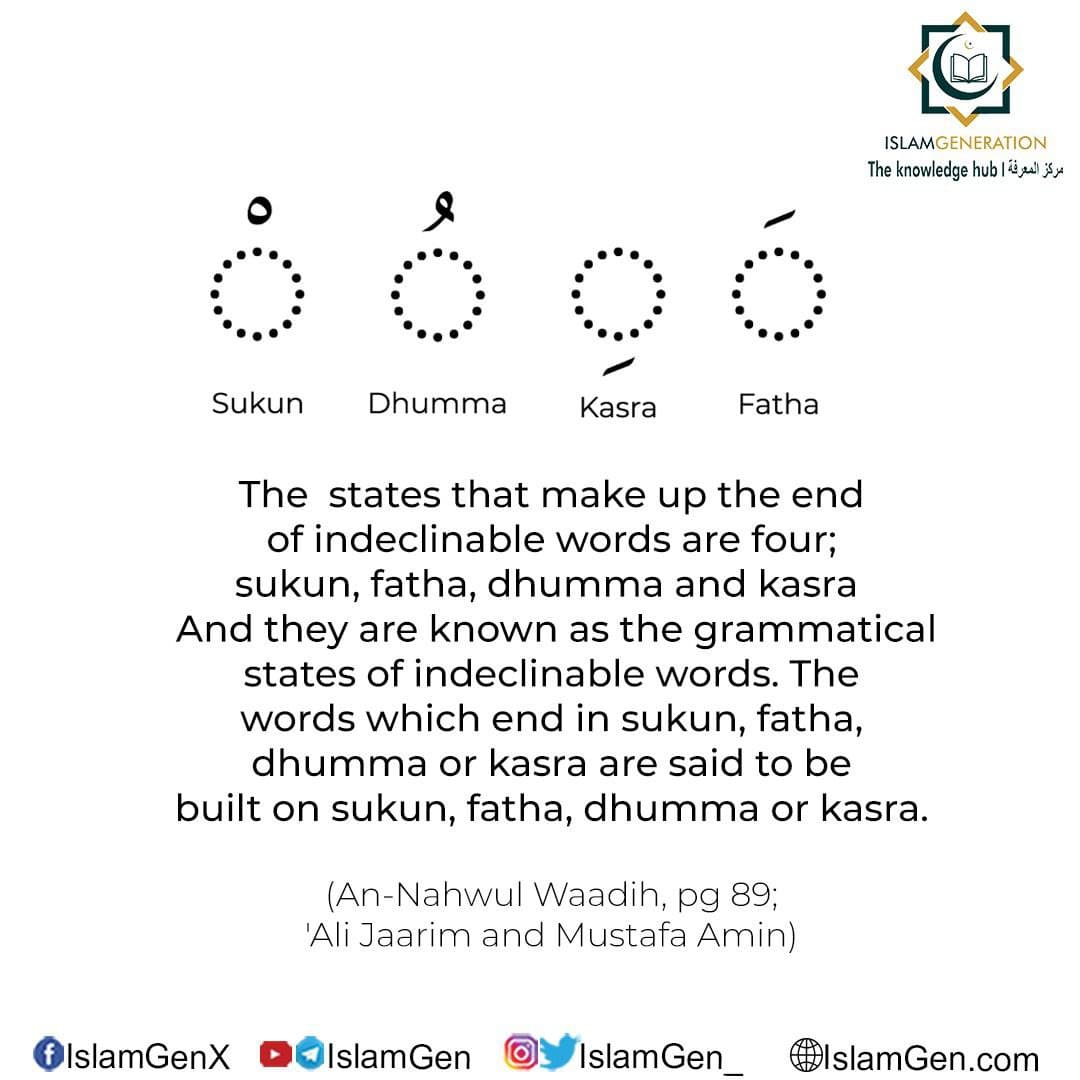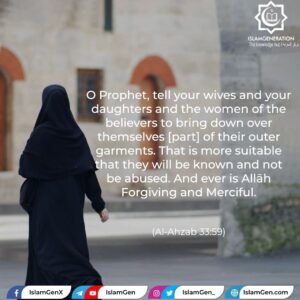﷽
EPISODE 4 – INDECLINABLE WORDS
The states that make up the end of indeclinable words are four;
- sukun
- fatha
- dhumma
- kasra
And they are known as the grammatical states of indeclinable words.
The words which end in sukun, fatha, dhumma or kasra are said to be built on sukun, fatha, dhumma or kasra.
Examples
١. كَمْ جَوَادًا فِي المِيدَانِ؟
(Kam jawadan fil midan)
- How many horses are in the field?
٢. كَمْ تَعِدُ وَلَا تَفِي؟
(Kam ta’idu wa la tafi)
- How much do you promise and not pay?
٣. إغْتَدَلَ الجَوُّ
(I’tadalal jawwu?)
- Is the weather clear?
٤. الجَوُّ قَدْ إِعْتَدَلَ
(Al jawwu qad i’tadala)
- the weather is clear
٥. قِفْ حَيْثُ أَنْتَ
(Qif haithu anta)
- stand where you are
٦. سِرْ إِلَى حَيْثُ شِئْتَ
(Sir ila haithu shi’ta)
- go wherever you want
We learnt from the previous episode that indeclinable words are words whose end remains the same in all the different arrangements of a sentence. And here we want to identify the conditions that make up the end of the indeclinable words.
The words “كَمْ”, “إِعْتَدَلَ”, and “حَيْثُ” in the above sentences are indeclinable words, because they end in states that do not change no matter the arrangement of the sentence.
The end of “كَمْ” has sukun, so it is said to be built on sukun. The end of “إِغْتَدَلَ” has fatha, so it is said to be built on fatha. And the end of “حَيْثُ” has dhumma, so it is said to be built on dhumma.
And if we look at the three pairs of sentences with the same indeclinable word, we notice that we do not see other than those grammatical states in each of them. They are the same in all sentences they are present in.
To be continued إن شاء الله
==============================
🕋 ISLAM GENERATION DA’WAH GROUP
For more Islamic reminders, check out:
WhatsApp:
https://bit.ly/3zdIFIu
Telegram: https://t.me/IslamGen
Twitter: https://twitter.com/IslamGen_
Instagram: https://instagram.com/IslamGen_
YouTube: https://youtube.com/IslamGen
Facebook: https://facebook.com/IslamGenX





